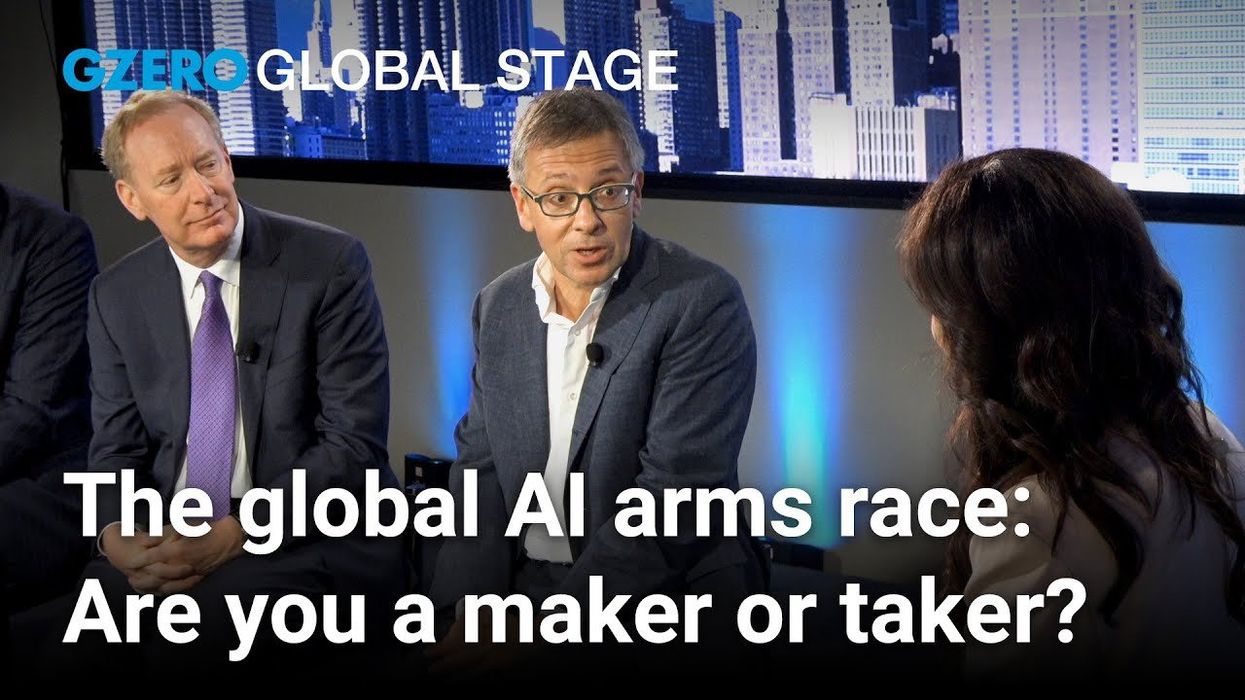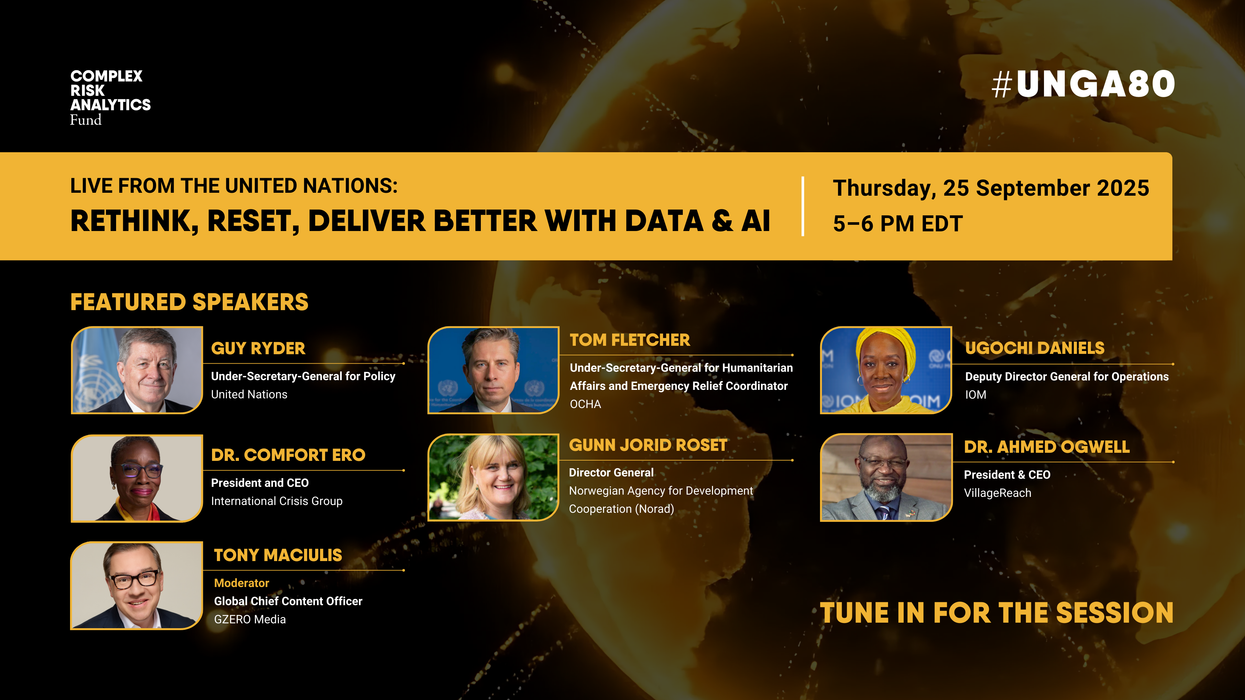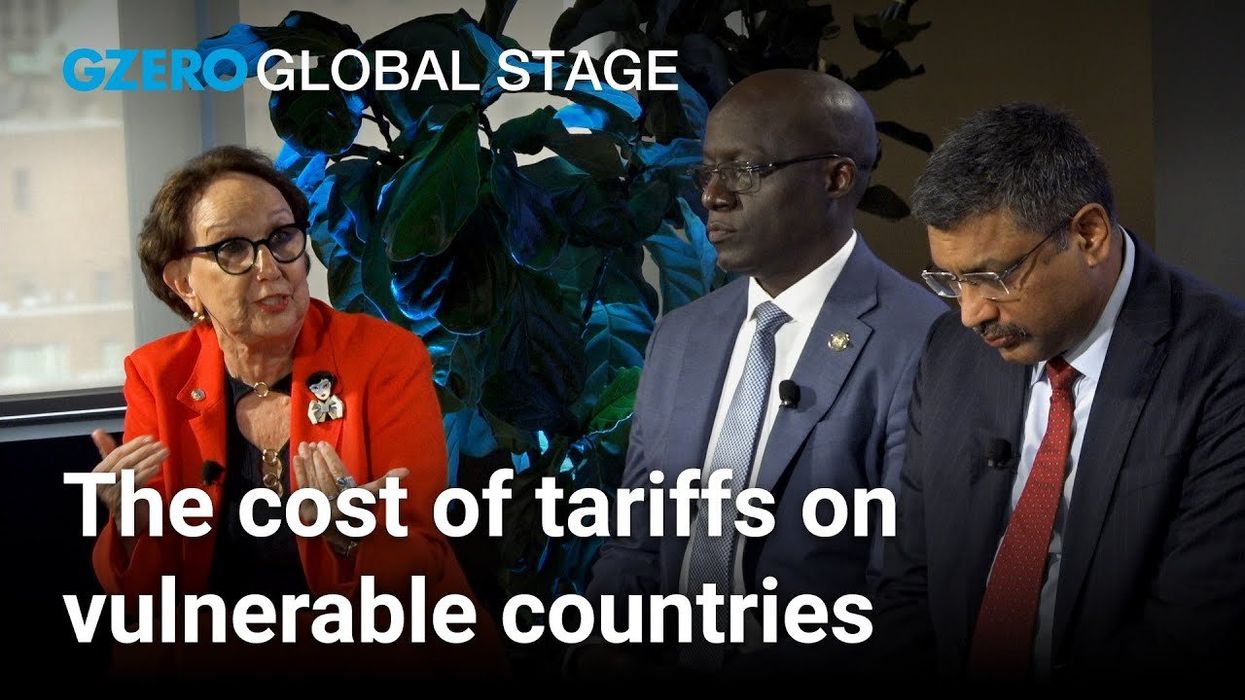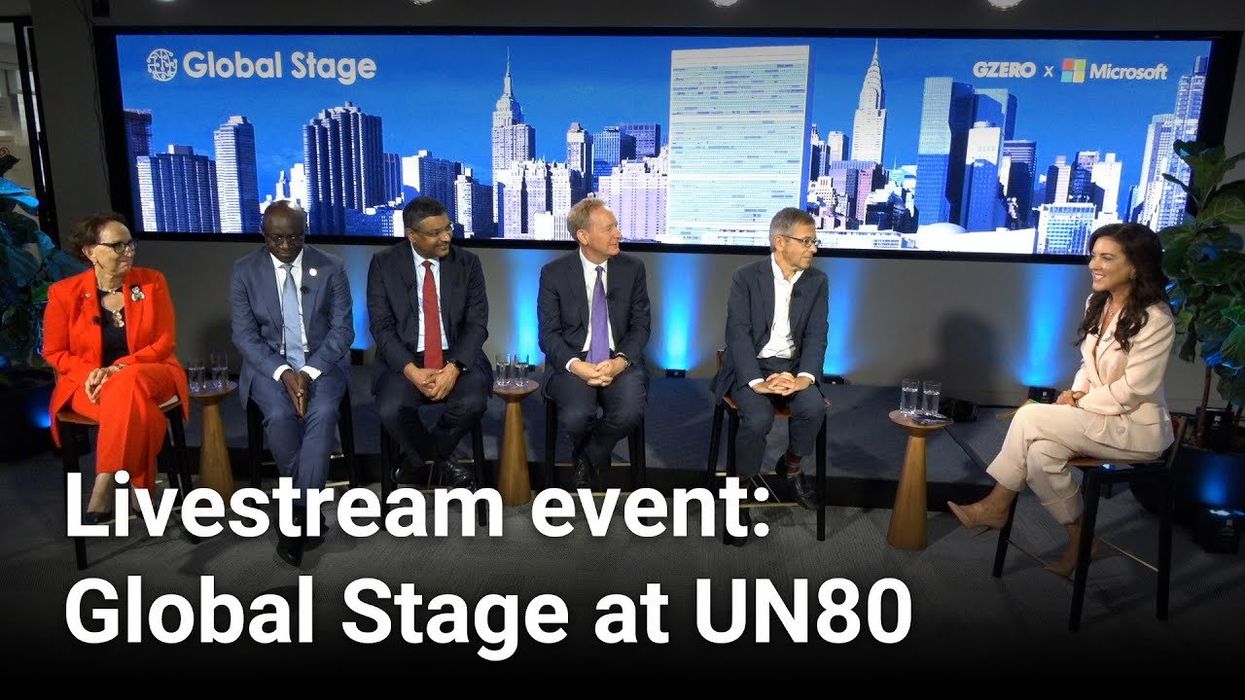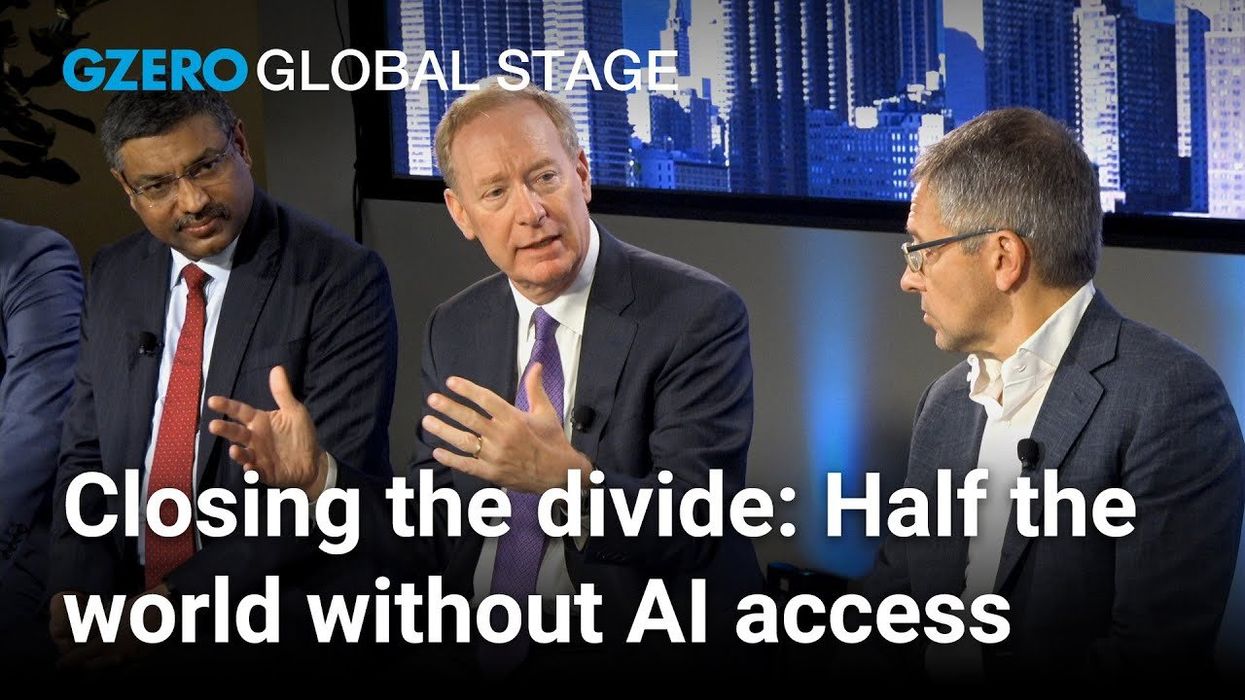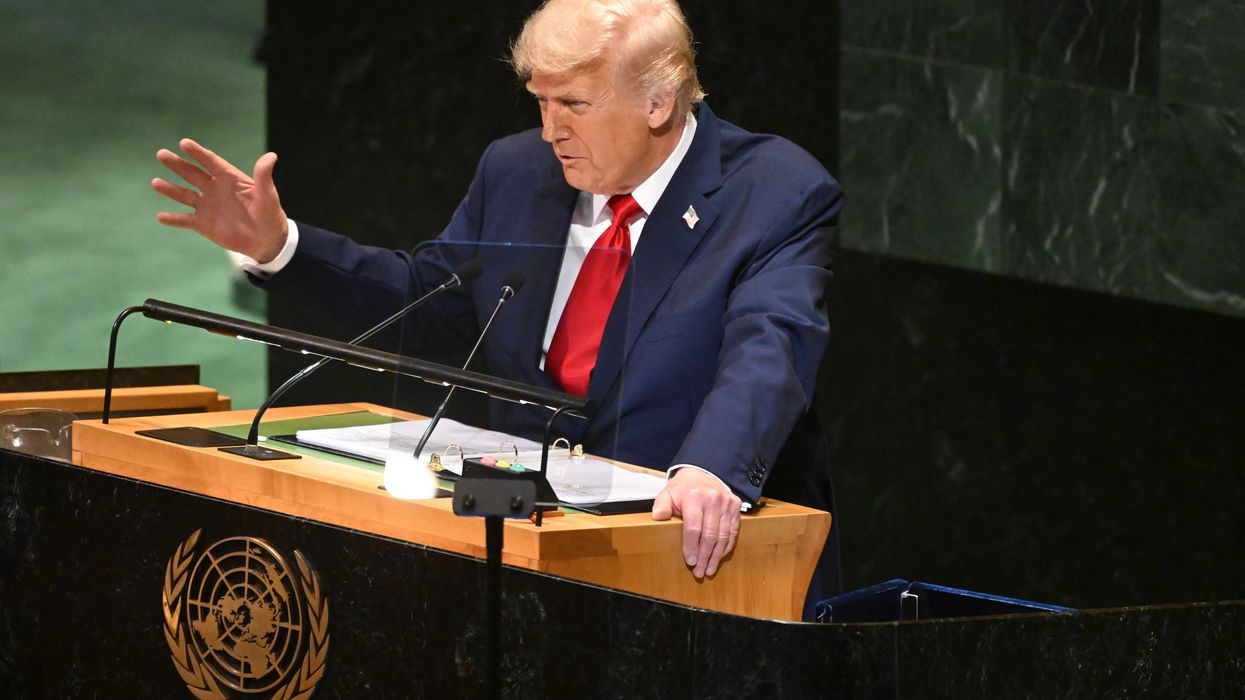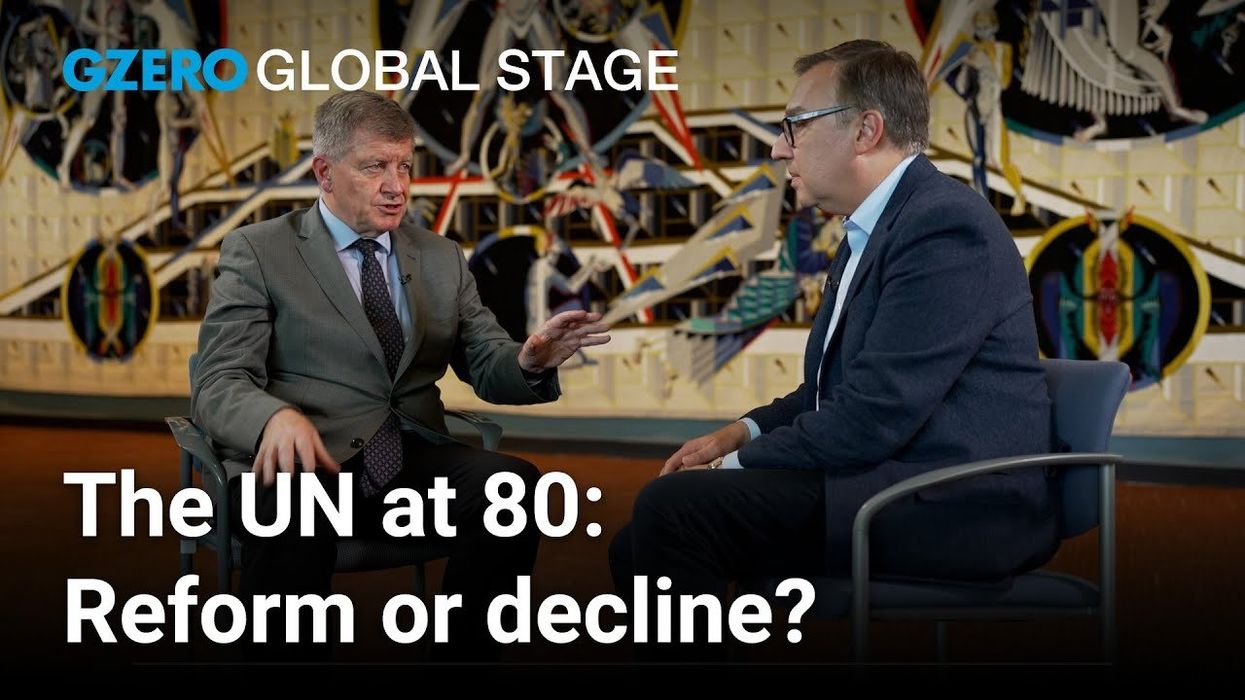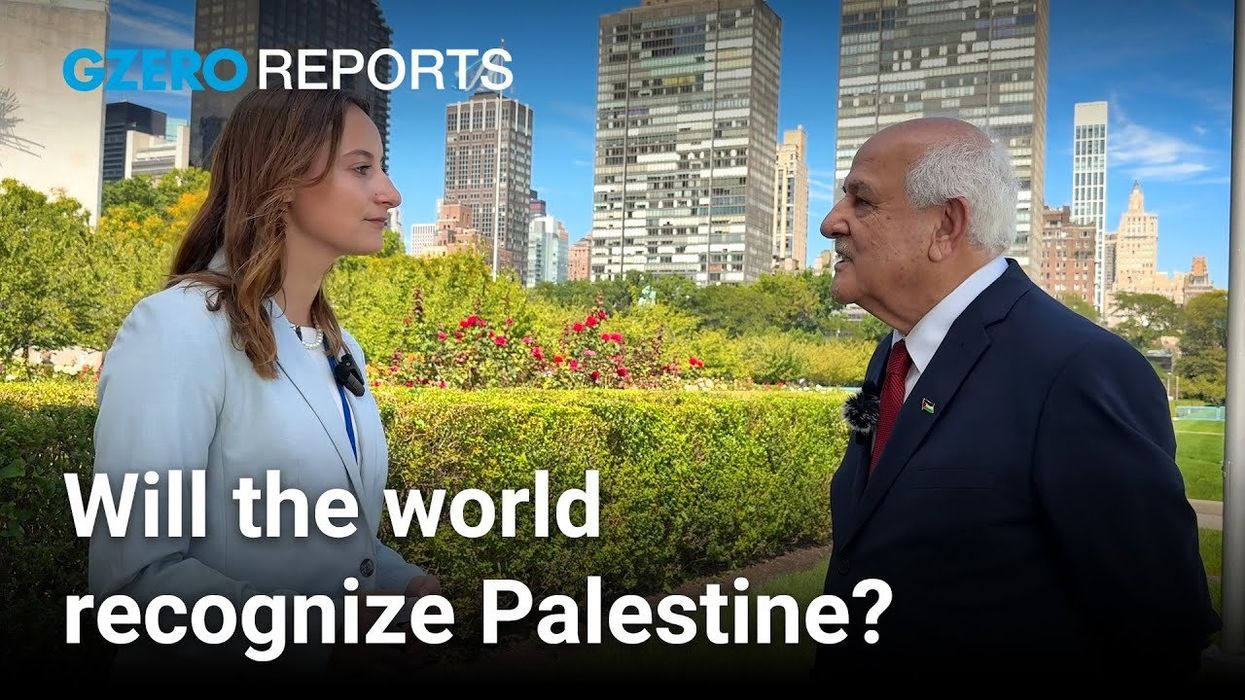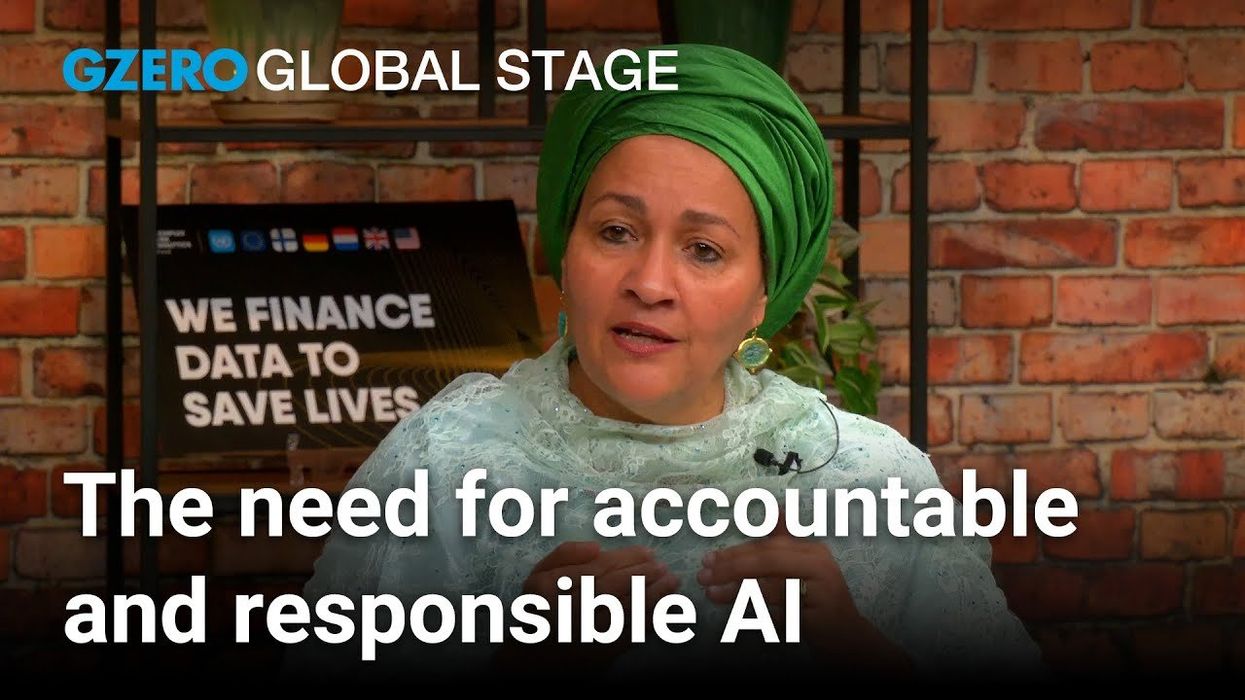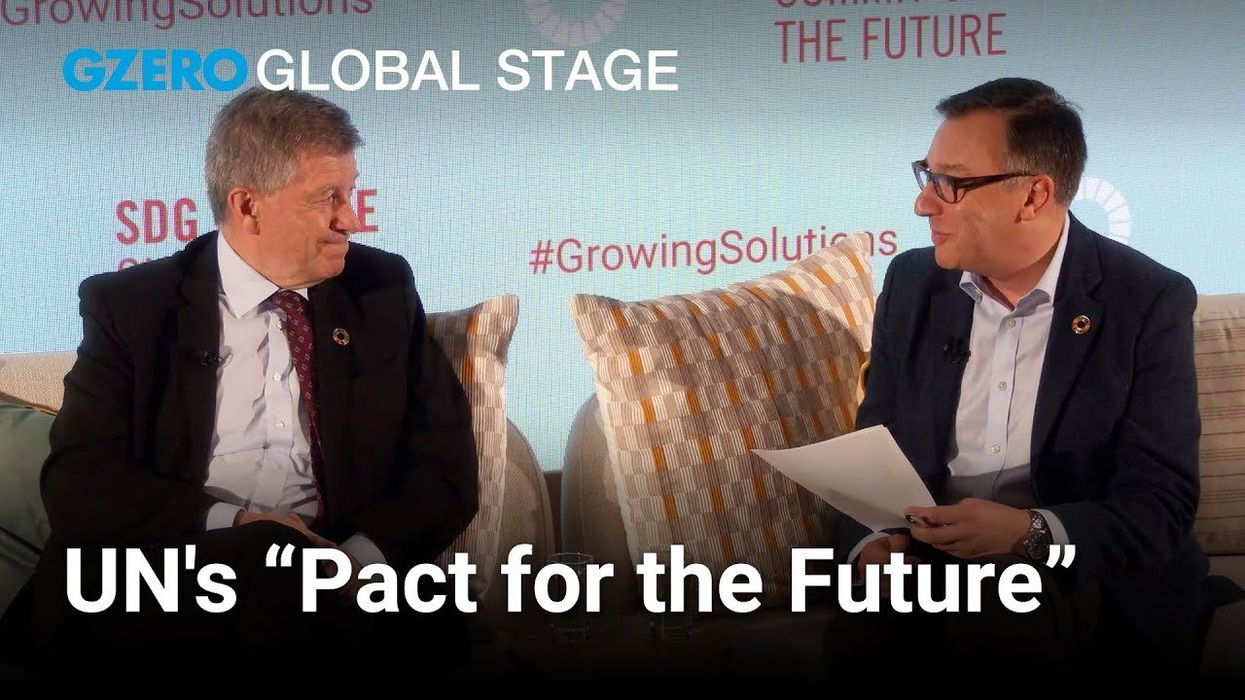Europe
The AI arms race goes global
“They’re not going to own it. They’re not going to make it. They’re going to be takers, not makers.” Ian Bremmer and Julia Chatterley discuss how the AI arms race is reshaping geopolitics, not just for the Global South, but also for Europe and beyond.
Sep 25, 2025
